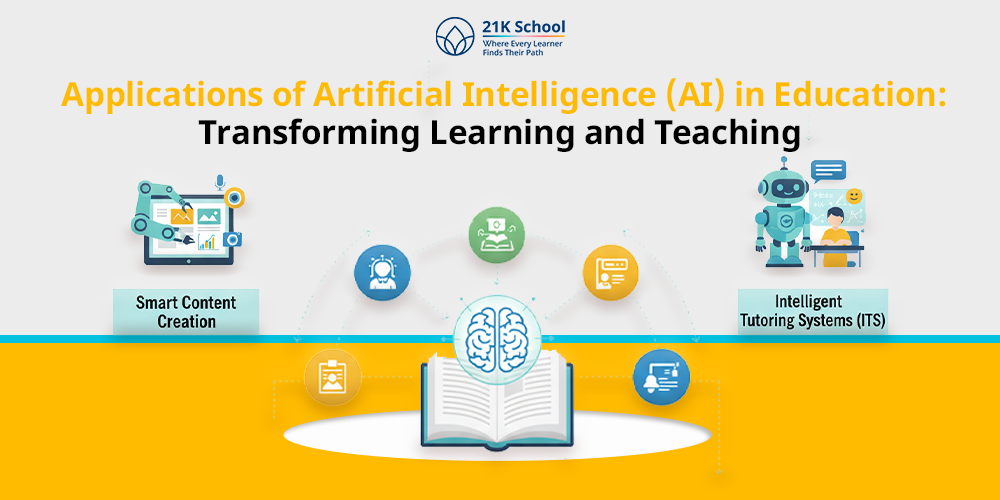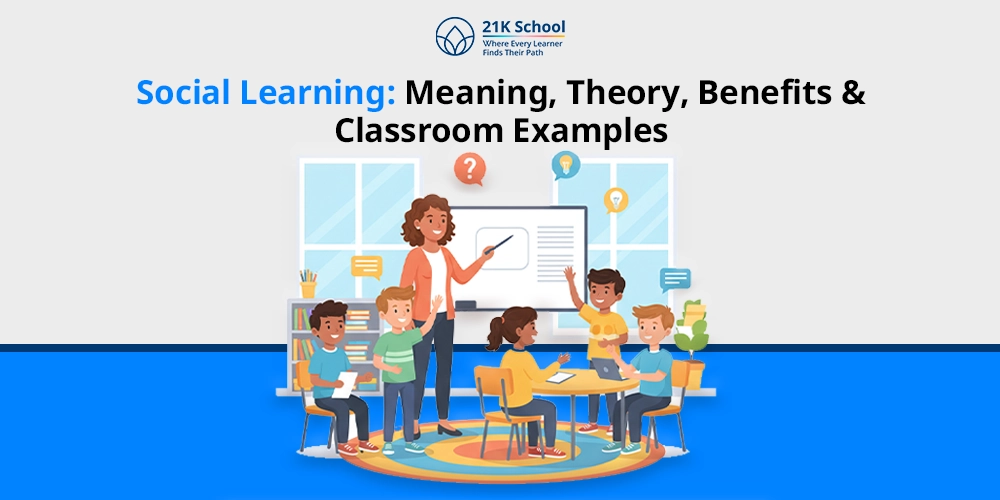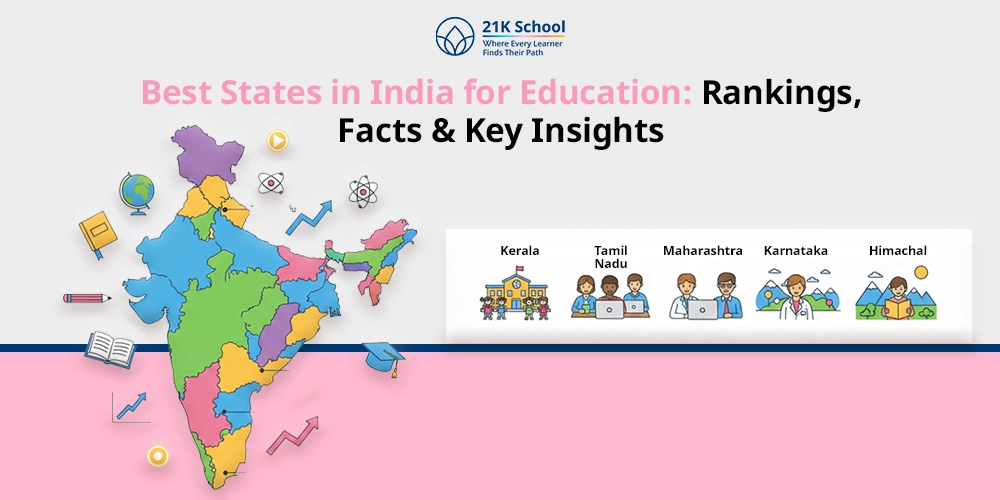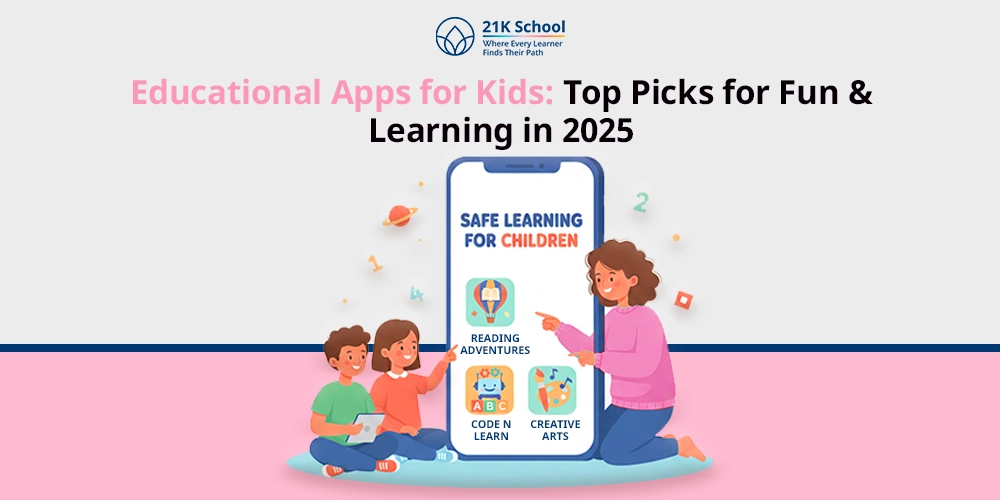
Artificial Intelligence (AI) is becoming a transforming power across various industries & countries. So, its impact on education is not surprising, of course.
By effortless process, AI is providing a customized learning experience, & improves all digital accessibilities.
It is helping teachers & students to learn in a different & unique way, which is more feasible nowadays.
From the traditional learning system to the e-learning system, AI has transformed a lot & is also providing proper fact-based analysis.
It is making learning fun, interactive & an accessible system.
At present, AI-driven tools & applications are not only prioritising academic results, but also they are focusing on how to save time & work on different innovative learning or teaching methods.
Therefore, the implementation of AI in modern education is now offering institutions the opportunity to adapt to creative thinking skills & student-centered learning instead of following rote learning.
Table of Contents
- What is Artificial Intelligence (AI) in Education?
- Evolution of AI in Education
- Key Applications of AI in Education
- 1. Personalized Learning
- 2. Smart Content Creation
- 3. Intelligent Tutoring Systems (ITS)
- 4. Automated Administrative Tasks
- 5. Smooth Curriculum Development
- 6. Virtual Classrooms and Learning Environments
- 7. Special Education Support
- 8. Data-Driven Decision Making for Institutions
- 9. Offers Smooth Feedback
- 10. Improved Learner Engagement
- Conclusion
What is Artificial Intelligence (AI) in Education?
Artificial Intelligence (AI) in Education refers to the cognitive algorithms, statistical models, & machine intelligence to boost & streamline educational knowledge.
AI systems can help the students to understand the behaviour, recognise the different learning methods, & customize the new teaching techniques in order to meet the needs of every individual.
In simple words, AI guides in designing a personalized learning approach, performance insights that help in improving both teaching & learning results. It helps teachers & professors to make students learn in their own way through customized lessons, and shares instant feedback with the students & helps in making learning more fun, engaging & meaningful.
Evolution of AI in Education
The topic of AI in education started in the 1960s. However, the transformation of modern AI is mainly powered by big data, data science & cloud computing is rapidly adding its influence.
Art present, AI is implemented in platforms such as AI Chatbots, personalised learning platforms, adaptive learning systems, & e-learning or virtual learning systems, which provide a different & unique learning environment for the students.
Therefore, the advanced AI tools & their implementation in education are just encouraging the active participation of students in learning & virtual classrooms & also help students to think in creative & innovative ways.
Key Applications of AI in Education
The main applications of AI in education covers personalized learning, smart content creation, and others like:
1. Personalized Learning
One of AI’s most comprehensive modes of learning is personalized learning.
With data evaluation & performance-based algorithms, AI is customizing the lessons, tasks, and projects according to the students’ preferences & learning styles. It helps them in acquiring adequate knowledge & at their own pace of learning.
Example: AI-driven tools like Smart Sparrow, Magic School AI, and Diffit help in managing lessons difficulty level according to the students’ learning progress.
Benefit: It helps the students to learn & grasp things easily & most importantly at their own pace & speed, & by bridging the academic gap & enhancing the holistic education.
2. Smart Content Creation
AI guides the teachers & mentors to add or implement interactive, engaging & fun learning elements such as e-books, practical-based projects or tasks & video lessons with HD picturizations.
AI tools help in summing up the lengthy content into smaller parts, and provide quizzes or practice questionnaire rounds among the students. It also converts the text-based concepts into video lectures or slide-shows, or image-generated concepts, which makes learning easy for the students.
Example: Platforms such as Magic School AI, Knewton, & Canvas AI feature, which can generate content-based study materials accordingly to the requirements of the performance of the students.
Benefit: This tool saves the time of the teachers & educators by ensuring the learners get instant access to new & relevant content.
3. Intelligent Tutoring Systems (ITS)
An intelligent tutoring system(ITS) performs as a mentor or guide that provides suggestions, instant feedback, & guides the students regarding their improvement areas.
This uses a Continuous monitoring and reporting process to keep track of the progress of students’ performance & helps learners to improve complex topics with the guidance of the teachers & mentors.
Example: An AI tool such as Duolingo’s AI tutor helps in adjusting the instruction levels automatically, which helps learners to stay calm & follow the instructions properly.
Benefit: It helps in improving the learning process by making it more feasible & accessible not only in the classroom but also outside the classroom.
4. Automated Administrative Tasks
AI enhances workflow efficiency in administrative work like attendance capturing, feedback generation & AI-driven empathy simulation.
By streamlining similar tasks or responsibilities, the mentors should help the learners to stay dedicated to their study hours, lesson scheduling & student engagement.
Example: AI tools such as Gradescope help students & teachers to access the human-written assignments & tasks with proper accuracy.
Benefit: It actually limits the teacher’s work pressure, enhances clarity & helps in getting immediate feedback for the students.
5. Smooth Curriculum Development
AI guides teachers in creating a well-designed, data-oriented curriculum framework.
It determines the bridge between the present programs, & advises improvements by focusing on the students’ performance.
AI analysis helps the learners & teachers to assess the learning results, & helps in arranging the teaching materials with the current education standards.
Benefit: It helps in improving the framework quality & assures rapid changes & in the teaching & learning styles.
6. Virtual Classrooms and Learning Environments
AI opens the door for creating a virtual learning environment(VLE). Here, the learners & the mentors or educators can meet remotely via online platforms & discuss any kind of issue or doubts.
These kinds of learning environments use AI for immediate language conversion, AI-driven content monitoring, & personalized learning systems.
Example: Here, the platforms such as Google Classroom, & Microsoft Teams help in implementing AI to improve the interaction between the teachers & students.
Benefit: It helps in improving the interaction among students & teachers, & also provides a flexible learning environment by sharing all accessible credentials for the meetings.
7. Special Education Support
AI in special needs students has created a huge impact in providing support to these students.
Tools such as speech recognition, text-to-speech converters, & emotion recognition methods help these students with disabilities to stay together & have a better understanding of the concept or topics.
Example: AI tools like Hand Talk help these kinds of students to learn & understand lessons smoothly via automatic speech recognition & Sign languages so that students can also actively interact in the classroom.
Benefit: It helps in encouraging students to learn with equal opportunities & chances for all kinds of students or learners.
8. Data-Driven Decision Making for Institutions
AI usually helps educational institutions with strategising their decisions.
AI tools assist schools or organizations in strategizing things carefully according to the students’ needs & requirements.
Plan & organize class routines & scheduling which category students may drop out.
So, basically, it helps in the overall management of decisions of the schools & institutions in a data-oriented way, which makes the process much smoother & easier.
Benefits: It guides the educational institutions via better performance & assures in evaluating data in the education system.
9. Offers Smooth Feedback
AI tools help in sharing immediate feedback & customized reviews on the students’ performances.
It’s not like the traditional grading system; here, it highlights the particular areas of improvement so that the learner should stay focused & work on their areas of improvement.
Example: The learning platforms such as Coursera or Quizlet help the students to access their performance after immediate evaluations & instant feedback.
Benefit: It helps in boosting the learning process more quickly & promotes self-assessments in order to get accurate & improved results or outcomes.
10. Improved Learner Engagement
AI-based education platforms are implementing gamification, virtual learning methods, bots, AI tools & interactive lessons via slides or videos in order to keep the students focused & engaged in the classrooms & learning.
Customized dashboards, & daily report, or a performance tracker help the students to keep their focus on studies.
This helps the students & teachers simultaneously because AI tools have proven themselves as a great asset for both of them; everyone just needs to use them in a proper & effective way.
Benefit: It helps the students to improve their memory power, focus, concentration & self-confidence while learning or understanding any new concept or topic.
Conclusion
Artificial intelligence (AI) has appeared as a framework of educational transformation. Its synchronization has improved customized learning, optimized work flow of the administrative framework & enhanced the inclusiveness for all the learners.
AI not only assists educators while teaching more effectively & attentively but also it encourages the students to grab the chance of taking ownership of their learning pathway. As AI is simultaneously developing, it is assuring to make educational systems & learnings to be more future-focused, student-centered & engaging.
At the end, the main aim & objective of AI is not to take the place of human teachers or professors, but to encourage them to be skilled with comprehensive online ai tools & technology. This technical tool is designing a balanced, effective & student-centered learning environment.



